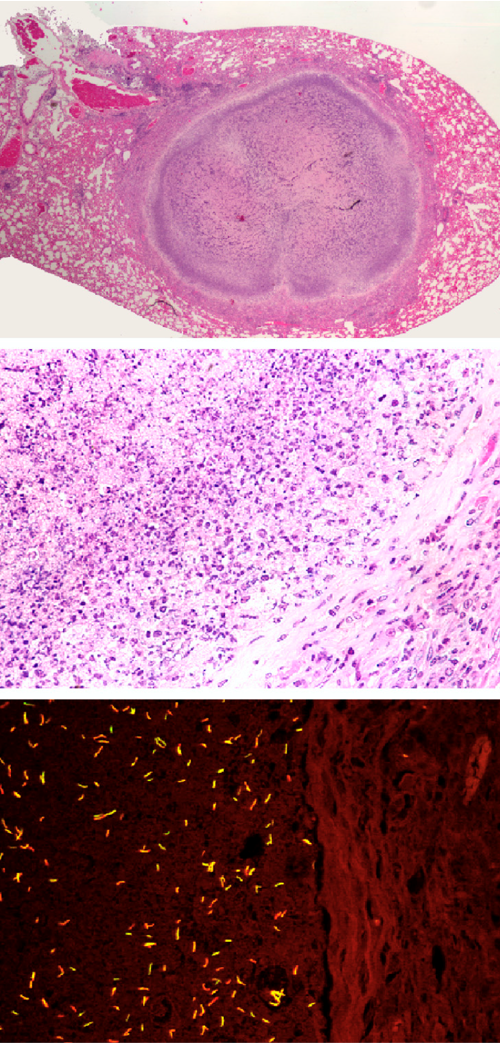New ways to attack necrotic tuberculous granulomas in the lung
 Approximately one quarter of all humans have been infected during their lifetime with Mycobacterium tuberculosis – the bacteria that causes tuberculosis (TB). Most of the infected people control the bacteria that remain dormant for many years. In some individuals, however, the bacteria grow in the lungs, causing severe lung damage, including the formation of necrosis and cavities. Those lung lesions become fertile ground for the bacterial growth and spread from human to human via aerosols. The mechanism by which only some humans infected with Mycobacterium tuberculosis develop progressive lung disease while others form granulomas that control the infection, remains poorly defined.
Approximately one quarter of all humans have been infected during their lifetime with Mycobacterium tuberculosis – the bacteria that causes tuberculosis (TB). Most of the infected people control the bacteria that remain dormant for many years. In some individuals, however, the bacteria grow in the lungs, causing severe lung damage, including the formation of necrosis and cavities. Those lung lesions become fertile ground for the bacterial growth and spread from human to human via aerosols. The mechanism by which only some humans infected with Mycobacterium tuberculosis develop progressive lung disease while others form granulomas that control the infection, remains poorly defined.
Dr. Kramnik’s laboratory has developed a unique mouse model that forms chronic necrotic lung lesions, similar to human TB granulomas. In these mice, TB susceptibility is linked to dysfunction of immune cells that normally harbor and control the bacteria – macrophages. When activated, the mutant macrophages develop unresolving stress that weakens their ability to fight the bacteria. In this newly published paper, Bhattacharya et al dissected the mechanism of the escalating stress and linked it to the hyperactivity of the type I interferon pathway. Remarkably, this pathway is involved in the control of viral infections but is also aberrantly activated in human TB patients. The authors found that interrupting the vicious cycle of the interferon-driven stress response in macrophages using small molecule inhibitor ISRIB reduced inflammation and damage in the lungs of MTB-infected mice. This study demonstrates that the unresolving stress plays a causal role in the progression of TB lung lesions towards necrosis. Correction of the aberrant stress response with inhibitors may offer a novel therapeutic strategy that will allow shortening TB treatment and reducing the pathogen transmission.
Bhattacharya, B, S Xiao, S Chatterjee, M Urbanowski, A Ordonez, EA Ihms, G Agrahari, S Lun, R Berland, A Pichugin, Y Gao, J Connor, AR Ivanov, B Yan, L Kobzik, B Koo, S Jain, W Bishai, I Kramnik. 2021. The integrated stress response mediates necrosis in murine Mycobacterium tuberculosis granulomas. J Clin Invest 131: 369–15.